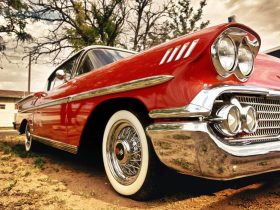What elements contribute to optimizing engine performance?
Modern cars are a complex amalgamation of technology and design, but the heart of every vehicle is the engine. So, let’s take a deep dive into the inner workings and components of a car engine and how they affect performance, and how you can optimize your car for the best performance.
The Types and Components of a Car Engine
The engine of a car is responsible for converting chemical energy from fuel (e.g. gasoline or diesel) into mechanical energy. The vehicle’s performance and efficiency are directly related to this engine. Engines can be classified into two categories: gasoline and diesel. Diesel engines are more efficient and often more powerful, while gasoline engines are lighter and can run on ethanol or other alternative fuels.
Common components of both engine types include pistons, valves, crankshafts, connecting rods, camshafts, and fuel injectors. The pistons and cylinders house the combustion, while the valves control air and fuel intake and exhaust. The crankshaft converts linear energy into rotational energy, while the connecting rods connect the pistons to the crankshaft. The camshafts open and close the valves at the correct times, while the injectors deliver fuel precisely when needed.
Factors that Affect Car Engine Performance
Several factors influence the performance of a car engine, including the vehicle’s size, weight, and aerodynamics. The larger and heavier a vehicle, the more power the engine needs to generate. Likewise, certain types of aerodynamics can cause drag, which eats up power and reduces performance. The engine’s displacement, fuel type, and compression ratio are also important performance factors. Displacement is the total volume of air and fuel an engine can burn, while compression ratios affect the power output and fuel economy.
Finally, the type of fuel an engine uses can influence its performance. Gasoline engines perform better with higher octane fuel, while diesel engines perform best with low-sulfur fuel. Engine engineers are constantly seeking ways to improve performance by tweaking the fuel delivery system and altering the design of engine components.
How to Optimize your Car Engine for Performance
By understanding the components of your car engine and the factors that affect performance, you can optimize your engine for the best output. Regular maintenance such as changing the oil and replacing air and fuel filters can ensure the engine is running as efficiently as possible. It’s also important to keep the engine in top condition by checking all belts and hoses and topping up fluid levels as recommended.
You can also optimize your engine’s performance by upgrading to high-performance parts like high-flow exhaust systems and cold air intakes. These upgrades free up airflow and increase power, while also improving fuel economy. Finally, you can install a performance chip or programmer, which alters the engine’s fuel/air ratio and timing for better throttle response, improved fuel economy, and increased power.
Final Thoughts
Modern car engines are complex machines that require regular maintenance and occasional upgrades to perform at their peak. Keeping your car engine in the best condition means more power and improved fuel efficiency. By understanding the components of your engine and the factors that affect performance, you can optimize your car for the best performance possible.














